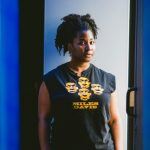A Statement from Pamela Tatge, Melanie George,
and Ali Rosa-Salas
This has been a year of such great loss in our country and in our world. Here at the Pillow, we navigated the first-ever Festival cancellation in our history, and the devastating loss of the Doris Duke Theatre. It is essential that we find safe and inventive ways to bring people back together again at a time when we need the healing potential of dance.
The 2021 Jacob’s Pillow Dance Festival will do just that: we will share the restorative and uplifting power of dance in person at our campus in the Berkshire Hills, on the road in our communities, as well as through live and on-demand events online to reach audiences across the world. Our offerings will include commissions, premieres, Pillow debuts, talks, and workshops that take into account COVID-compliant protocols to ensure the health and safety of our community.
The festival will put artists back to work after the devastation of the pandemic and remind us all of the power of dance to positively impact communities.
Our inaugural multi-platform Festival is curated by Artistic Director Pamela Tatge who, for the first time, is joined by two Associate Curators: Melanie George and Ali Rosa-Salas. Together, we have planned a Festival that experiments with new ways of engaging audiences and explores the following themes:
We will delve into the multiple histories that exist on the land of Jacob’s Pillow. We will continue to contextualize the legacy of our founder Ted Shawn and what led him to create what has become the country’s longest-running dance Festival. We will also honor our history as a site along the Underground Railroad and our responsibility to amplify the fundamental role Black artists have had in the evolution of dance. Simultaneously, we will continue to celebrate the art of Indigenous peoples on whose land we dance: the Agawam, Mohican, Nipmuc and Pocumtuc, and artists from those nations who have been displaced.
This work continues as our institution addresses how systemic racism in the United States acutely impacts the dance field. We are committed to dismantling systems in our organization that oppress and limit those who feel welcome at the Pillow, while supporting artists of all kinds to tell their own stories. Festival 2021 will center the work of BIPOC (Black, Indigenous, People of Color) and provide platforms for their stories to be told and archived.
This time of quarantine has helped us appreciate our relationship to the environment, and its power to be both healing and generative. We explore the responsibility we have to steward our environment, acknowledging the vulnerabilities humans face from environmental and biological forces, and the role we play in rectifying the imbalance with our natural surroundings. A number of events and performances will connect with the natural stages on the Pillow campus and will, by design, bring us into dialogue with our campus in new ways.
Finally, we know that a number of artists used their COVID quarantine to experiment with new ways to integrate augmented and virtual reality into performances, extending how and where dance can happen in the digital space. The Festival will provide a platform for these artists to share their work and share the results of their experimentation with audiences.
Across all platforms, we are deepening our support of artists who so urgently need to be able to return to work after the pandemic. The Pillow began this work in the Fall when it invested in extensive COVID safety measures and made it possible for artists to begin creating again in bubble residencies in our Pillow Lab program. We continue our commitment to health + safety this summer by funding all testing needs; supporting residencies on campus just prior to performances for artists to prepare what for many will be their first public presentation in a year; and compensating artists for the rights to stream their work.
We invite you to share many extraordinary moments with us this summer at the end of what has been an extraordinary year. Come and see what we have to offer you in person and online!
Pamela Tatge, Melanie George, and Ali Rosa-Salas


